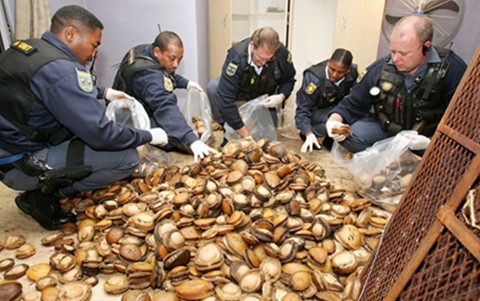 Whenever we find ourselves wandering around a massive Chinese supermarket, we inevitably gawk at the price of dried abalone. The delicacy has never crossed our lips thanks to its exorbitant cost. But millions of Asian consumers are willing to fork over the pretty penny, in part due to the marine snail’s reputation as an aphrodisiac.
Whenever we find ourselves wandering around a massive Chinese supermarket, we inevitably gawk at the price of dried abalone. The delicacy has never crossed our lips thanks to its exorbitant cost. But millions of Asian consumers are willing to fork over the pretty penny, in part due to the marine snail’s reputation as an aphrodisiac.
That demand has caused serious problems in South Africa, where Chinese triads poach thousands of tons of abalone each year, often by swapping methamphetamine for shellfish. As a result, South Africa’s abalone fisheries could completely collapse within the next three to four years, robbing the Western Cape of one of its most valuable commodities.
With demand unlikely to debate as China’s middle class develops, and law enforcement seemingly powerless to stem the tide in South Africa, perhaps it’s time for Option C: enabling China, Japan, and other Asian nations to grow their own. This can be done in such a manner that South Africa isn’t cut out of the economic gains—instead of providing the abalone, it can provide the specially engineered food, which is best grown in the mollusks’ indigenous environments.
Granted, China’s previous experiments with abalone farming have not gone well. But the expertise to avoid such pitfalls can be imported from South Africa, too. Perhaps the abalone barons of the Western Cape simply need to realize that their future lies in services, rather than the biological version of manufacturing.


Like gas stations in rural Texas after 10 pm, comments are closed.